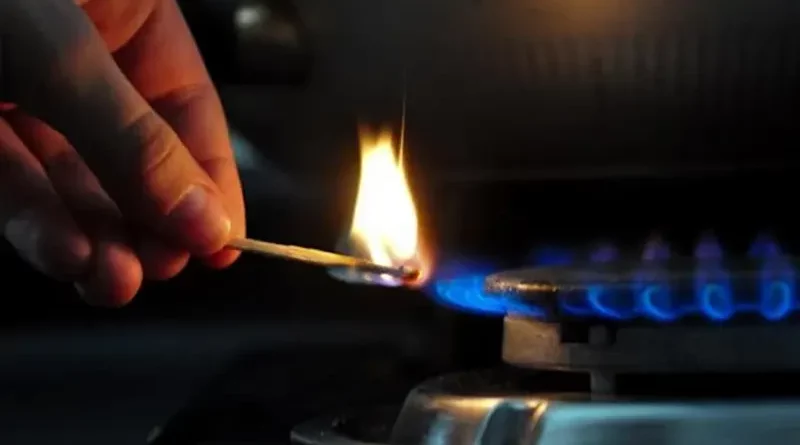Gas tariff increase plan in works under IMF agreement
ISLAMABAD: The Petroleum Division is in the process of giving the final touches to a summary to increase the gas tariff, which will be tabled in the Economic Coordination Committee (ECC) meeting for approval, The News reported on Monday.
This development comes as the first review of the International Monetary Fund (IMF) under the $3 billion Stand-by Arrangement (SBA) loan would start at the end of the current month, October.
After ratification by the federal cabinet, the government will notify the new gas prices not from July 1, 2023 but from the date the cabinet approves the new tariff, top officials at the energy ministry told The News.
“The top functionaries of the Petroleum Division have so far planned not to spare even the protected residential consumers just to ensure a zero increase in monthly flow to the circular debt in the gas sector. The protected consumers falling in the first four slabs, utilising gas up to 0.25 HM3, 0.5 HM3, 0.6HM3 and 0.9hm3 may face an increase from Rs300 to less than Rs500 per MMBtu.”
They told The News that the government has also planned to end the differential treatment of the fertiliser sector and may also increase the gas tariff for the sector up to Rs1,500 per MMBtu for feedstock purposes. The said increase will be applicable to all fertiliser industry players.
The fertiliser sector is currently getting subsidised gas rate of Rs510 per MMBtu for feedstock and Rs1,500 per MMBtu as fuel for electricity generation, steam and use of housing colonies.
The official said that Fauji Fertiliser among its competitors was getting a much lower gas price from the Marri Gas Company. Fauji Fertiliser was getting gas for feedstock at the rate of just Rs302 per MMBtu, which is why Marri Gas Company braved the loss of Rs4 billion last year. Now it is not simply possible to feed the fertiliser sector with cheaper gas as the gas sector has virtually become unsustainable. The circular debt of the sector has risen to Rs2,900 billion.
So much so, the hike in gas prices for the export industry has also been proposed to go up to Rs1,800 per MMBtu from Rs1,100 per MMBtu. The government has not allocated any budgetary subsidy for FY24 as against Rs25 billion in the last fiscal.
For the non-export industry (general industry), the gas price is likely to increase by Rs2,500 per MMBtu from Rs1,200 per MMBtu. The gas tariff is also likely to jack up to Rs3,000 per MMBtu for commercial consumers from the existing tariff of Rs1,650 per MMBtu. The compressed natural gas (CNG) industry’s gas tariff is also likely to increase from Rs1,805 per MMBtu to Rs4,000 per MMBtu. The gas tariff for the cement industry is also estimated to climb up to Rs4,000 per MMBtu from Rs1,500 per MMBtu.
The export sector captive power plants in Punjab and Sindh will be treated equally as they will be provided 50% regassified liquefied natural gas (RLNG) at full cost and 50% local gas at the rate of 1,800 per MMBtu. This is how their average price will stand at the existing $9 per MMBtu.
Coming to the domestic sector, the remaining eight domestic gas categories, which are non-protected consumers, will face the increase, but the high-end consumers, who fall over the 4 hm3 slab, may have to face a massive increase in their tariff up to Rs4,000-4,500 per MMBtu.
This is because 0the gas price has been linked with the price of liquefied petroleum gas (LPG) cylinder of 11.1 kg.
Likewise, other high-end consumers, who fall in 3HM cubic meters and 4HM3 category, will also face a massive increase (HM3 means 100 cubic metres gas).
The government is importing RLNG at Rs3,700 per MMBtu but selling it at Rs1,100 per MMBtu on an average, which is no longer justifiable. Last time, the federal government notified the category-wise gas sale prices to increase from January 1, 2023.
On June 2, 2023, the Oil and Gas Regulatory Authority (Ogra) announced an increase of 50% (Rs415.11 per MMBtu) for the consumers of Sui Northern Gas Pipelines Limited (SNGPL), pushing the subscribed gas price up to Rs1,238.68 per MMBtu.
The regulator increased the gas price by 45% (Rs417.23 per MMBtu) for the consumers of Sui Southern Gas Company Limited for 2023-24. The Sui Northern Gas Pipelines Limited (SNGPL) still has the previous year’s accumulative shortfall of Rs560.378 billion up to FY23, while Sui Southern has a shortfall of Rs97.388 billion and this is how the existing shortfall of both the gas companies stands at Rs657.766 billion.

